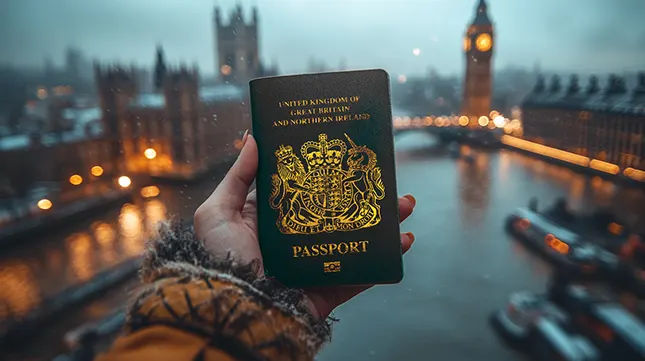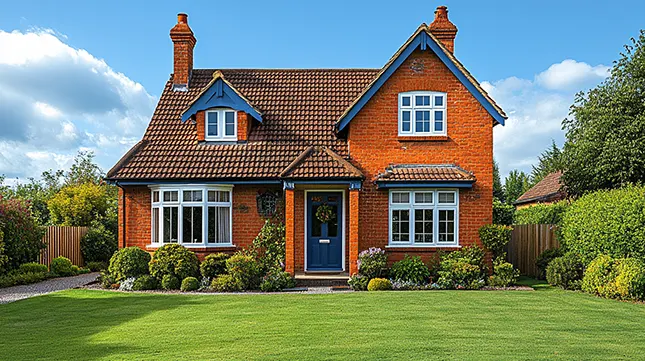Moving to UK from South Africa – 2025 Returning Guide

Are you thinking of moving to UK from South Africa?
Returning to the UK after years spent in SA brings a blend of nostalgia and anticipation.
The British Isles offer a unique blend of historical charm and modern convenience, making it an appealing destination for those looking to resettle.
For many British expats, one of the biggest allures of returning home is reuniting with family and rediscovering the country’s rich cultural tapestry.
The UK’s cost-free healthcare system, quality education, and stable economic environment are just some benefits awaiting returnees.
Additionally, the housing market, though competitive, provides numerous opportunities for those looking to buy a home, with various regions offering a range of property types to suit different lifestyles.
Whether it’s the bustling energy of London or the tranquil beauty of the UK’s coastal or countryside locations, the UK promises a rewarding life for those returning.
In our article, we aim to discuss some key factors for those moving from South Africa to the UK.
Family and Social Connections

One of the main reasons people consider returning to the UK is to be closer to friends and family.
The emotional pull of reconnecting with loved ones for so long can be powerful, particularly for those who have missed important milestones such as weddings, births, and other significant family events.
As parents age or new grandchildren arrive, the pull of family becomes even stronger.
Though you will have undoubtedly made some fantastic friends in South Africa, the emotional support and sense of belonging from being close to loved ones are irreplaceable.
This sense of community and emotional support can significantly enhance the quality of life, making the return to the UK a fulfilling and rewarding experience.
Plus, not everyone takes to living abroad. Some feel isolated and lonely and cannot come to terms with their homesickness, so returning home is the best choice for them.
Whether you have been away for many years or just a few, and whatever your reasons for returning home, it will take time to familiarise yourself with and re-establish yourself in UK life.
Visa Requirements

Make sure you and your family meet all of the visa requirements.
While some returning residents may not have to apply for visas, they or their accompanying relatives may have to do so in some instances.
Returning British citizens generally do not need a visa to settle back into the UK, as they have the right to live and work there.
However, they may need specific visas if they bring non-British family members, such as spouses or children.
Ensuring that all necessary paperwork for non-British family members is in order can help ensure a smooth transition back to life in the UK.
If you have given up your British citizenship and wish to return to the UK, you must go through the immigration process, as you are no longer considered a British citizen.
You can apply to resume your British citizenship if you have previously given it up.
You must have been a British citizen before and prove why you gave up your citizenship and now want it back. There is also a residency requirement.
The application process requires you to fill out Form RN (Application to Resume British Citizenship), pay the application fee, and provide supporting documents.
More Information about all visa categories for those returning is listed on the UK Government website.
Organising Your Finances

You will need to make sure you take the time to organise your banking and finances.
When you are moving to the UK from South Africa, getting your finances in order is crucial.
The unfavourable Rand vs. British Pound exchange rate means you must be extra careful with your money to make it stretch as far as possible.
If you haven’t already, open a bank account in the UK. This fundamental step will facilitate managing your finances locally.
If you’ve lived in the UK before, you might be familiar with the process, but if not, websites like MoneySavingExpert can guide you through it.
Next, inform HM Revenue & Customs (HMRC) about your move home so you can adequately manage your tax obligations.
Understanding your pension rights and how they transfer between countries is also vital.
The HMRC website provides detailed guidance.
If you have been away for a long time, consulting a financial advisor specialising in international moves may benefit you.
By taking these steps, you can ensure that your financial transition to the UK is smooth and well-organised, setting you up for success in your new chapter.
The Experts for Expats website provides more information about properly managing your financial situation when planning your return.
About the UK Housing Market

The housing market in the UK has changed dramatically over the last few years.
You may not be aware of what has happened in the UK housing market in recent years.
Economic factors, interest rates, and the aftermath of the COVID-19 pandemic have hugely influenced the markets.
The UK property market has seen considerable changes in recent years.
While there was a period of exponential growth in the markets, thankfully, things have slowed down.
For instance, prices fell by 2.4% year-on-year in July 2023 (J.P. Morgan | Official Website)
According to Savills, house prices are expected to grow by 2.5% in 2024, but this growth is susceptible to mortgage interest rates (Savills).
With Britain going to the polls in July 2024, the future of the markets is unknown.
Hence, thoroughly researching the UK property market is essential.
Websites like Rightmove and Zoopla offer current listings and detailed insights into property prices, helping you set realistic expectations.
By being well-informed and ready for the higher property costs, you’ll be better positioned to make a sound investment and enjoy a successful relocation.
Cost of UK Properties

You may be surprised by the cost of houses in the UK if you have been away for an extended period.
Selling your home in South Africa before the move could be a strategic decision, giving you the financial flexibility to invest in the UK housing market.
If your budget has been cut due to the low exchange rates, you should relocate to an area that offers good value for money.
Take time to research the best areas so that you can make your money work for you.
Consider taking on a project.
Though renovating a home is hard work, it can pay dividends financially.
There are plenty of help-to-buy incentives, such as shared ownership and loans.
House price growth varies from region to region. Scotland, Yorkshire, and the Humber have seen faster growth, whereas London and the South East have experienced declines.
According to the Land Registry, the current average price of a property in the UK is £281,000.
Taking the home counties as an example, average property prices are as follows:
- Detached £641,241
- Semi-detached £408,740
- Terraced £337,961
- Flats £247,494
These averages might be significantly more than what you’re used to in South Africa.
About the Cost of Living in the UK

Moving to UK from South Africa will mean adapting to the cost of living differences.
Living in the UK is known for its high cost, which continues to rise, often challenging returning residents.
Upon arriving in the UK, you should be prepared for significantly higher living expenses than in South Africa.
However, these costs can vary greatly depending on the region.
For instance, living expenses tend to decrease as you move towards the country’s northern parts, providing some financial relief compared to the south.
London continues to be notoriously expensive and is considered one of the most expensive cities globally.
Despite the high cost of living, the UK offers higher wages compared to South Africa, which can help offset the increased expenses.
According to Numbeo, you could earn, on average, double in the UK than in South Africa for a similar job.
This wage difference is a critical factor to consider as it significantly impacts your standard of living and financial stability.
Before making a move, research the cost of housing, food, transportation, healthcare, and other daily necessities in the specific area you plan to live.
Websites like Numbeo provide detailed comparisons and can give you a realistic understanding of what to expect.
Additionally, consulting resources like Expatica should be considered for insights into the cost of living in various UK cities.
By understanding the financial landscape and preparing accordingly, you can decide whether relocating to the UK is financially viable for you and your family.
Finding a Job in the UK

Finding a job before you move could be key.
The ease with which you find employment will likely hinge on your qualifications and experience.
To start, consider temporary or contract work.
This can provide you with a steady income, allow you to build a network, and gain recent UK work experience, which can be beneficial for securing a permanent role later.
These days, the best way to find work is to spend time searching for jobs through the many online employment agencies.
Websites such as Prospects offer career advice, job listings, and information on various industries.
The UK government’s Jobcentre Plus also supports job seekers, including job listings and advice on writing CVs and preparing for interviews.
Other popular platforms include CV-Library, the UK’s Largest Independent Job Board, Indeed and totaljobs.
Brush up on your interview skills by practising common interview questions and answers.
Research the companies you apply to and understand their values, culture, and recent developments.
Demonstrating knowledge about the company during an interview can set you apart from other candidates.
By taking these steps, returning British expats can effectively navigate the UK job market and find employment that leverages their international experience and skills.
Resuming Education in the UK

If you are moving with a family you will need to check out local schools.
Moving home is a massive event for children, some of whom may have never lived in the UK.
Much adjustment is needed, from making new friends to new schools and differing educational systems; they will require much emotional support at an unsettling time.
Discuss the differences your child might face in the UK education system to prepare them for the transition.
Please encourage them to participate in extracurricular activities to help them settle in and make new friends.
Once you decide where to settle, the next issue is finding a suitable school.
Start by researching schools in the area where you plan to live.
Use resources like Ofsted reports to evaluate school performance and school comparison tools the government provides.
Local authorities manage school admissions for state schools. Contact the local council to understand the admissions process and deadlines. For private schools, contact the schools directly.
From your council website, you can apply for a school place for your child.
If you have no knowledge of education in the UK, visit Expatica. They have a very helpful page explaining the UK education system from nursery education to secondary.
Be patient with your children; adjusting to new schools is hard when children move from county to county in the UK, let alone from a location thousands of miles away.
Driving in the UK for Returning British Citizens

Follow these steps to get back to driving in the UK.
If you’re a British citizen returning from South Africa, getting back behind the wheel in the UK involves some crucial steps regarding your driver’s license.
The UK allows holders of a South African driving license to drive for up to 12 months upon arrival.
During this period, it is crucial to contact the Driver and Vehicle Licensing Agency (DVLA) to exchange your South African license for a UK driving license.
The process is straightforward and does not require another driving test, making it relatively hassle-free for those with permanent residence in the UK.
According to the UK Department for Transport, after the initial 12-month period, you must have a valid UK driving license to continue driving legally.
For South African drivers planning to settle in the UK permanently, you can exchange your license within the first five years of becoming a UK resident.
This exchange ensures you comply with UK driving laws without undergoing the driving test again, provided your South African license is valid.
To start the process, visit the DVLA website for detailed instructions and to download the necessary forms.
Shipping Your Belongings Back to the UK

Shipping your belongings from South Africa to the UK is not too difficult.
First, decide whether you will return all your possessions or just a few specific items.
Most people opt to transport all their belongings due to the high cost of replacing everything.
If this is your plan, contacting a reputable international moving company is essential.
Choosing the right mover can be daunting due to the numerous options available.
Ensure the company you select is a FIDI, BAR, and Omni member. These organisations apply rigorous standards and audits, guaranteeing high-quality service and assuring you get a professional mover.
Call White & Company in the UK. We are known for our extensive experience and reliable global partners, including South Africa.
White & Company can connect you with trusted partners in South Africa to facilitate your move.
Your chosen removal company in South Africa will guide you through the export process and assist with the necessary UK import documentation, ensuring a seamless transition.
For more information on preparing for your move, download the FIDI guide to the UK import regulation customs.
By selecting a reputable moving company and understanding the logistics involved, you can ensure a stress-free return to the UK.

Max is a seasoned writer and blogger in the real estate and home moving sectors, as well as a knowledgeable source of information for expatriates living and working abroad. His detailed insights have helped thousands of people move and live abroad with greater simplicity and ease.
Posted in: News
Leave a Comment (0) ↓


